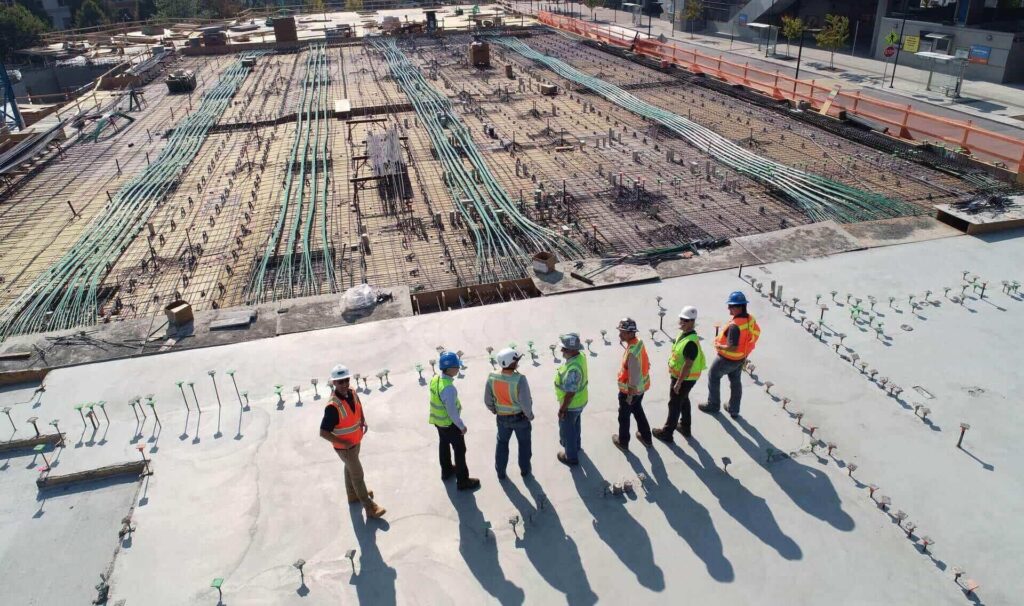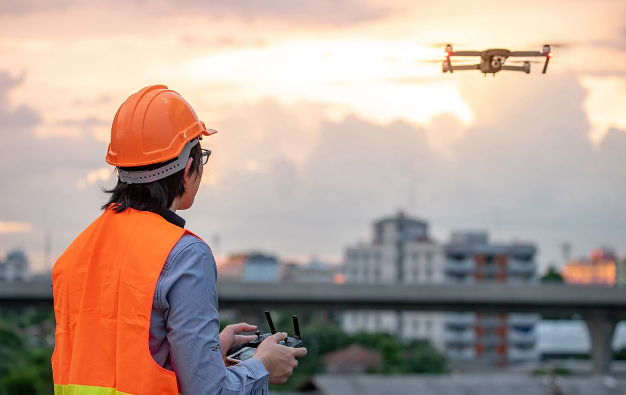The construction industry is constantly evolving, with technology playing a significant role in shaping its future. As project demands become increasingly complex and clients expect more efficient, sustainable, and innovative solutions, technology has emerged as a key driver for success. In this blog post, we’ll explore some of the latest technological advancements and discuss how they are revolutionising the construction industry, making it more efficient, cost-effective, and environmentally friendly.
- Building Information Modeling (BIM) Building Information Modeling (BIM) is a digital representation of the physical and functional characteristics of a building. This 3D modelling technology allows for better collaboration between architects, engineers, and construction professionals, resulting in more accurate designs and streamlined construction processes. BIM enables project stakeholders to identify and resolve potential issues before construction begins, reducing the likelihood of costly errors and delays.
- Drones and Aerial Imaging Drones have become increasingly popular in construction for site surveying and monitoring. Equipped with high-resolution cameras, drones can capture aerial images and generate accurate topographical maps of construction sites. This technology helps construction professionals make informed decisions about site selection, design, and project planning. Additionally, drones can monitor construction progress, ensuring that schedules are being followed and detecting any deviations from the planned course of action.
- 3D Printing 3D printing is revolutionising the construction industry by allowing for the rapid production of building components and even entire structures. Using various materials, including concrete and metals, 3D printers can create complex architectural elements, custom-designed to fit specific project requirements. This technology not only reduces waste and material usage but also accelerates the construction process and lowers labor costs.
- Robotics and Automation Robotics and automation are becoming more prevalent in the construction industry, leading to increased efficiency and reduced labor costs. Robots can perform tasks such as bricklaying, steel framing, and concrete pouring, often with greater precision and speed than their human counterparts. Additionally, automation can help streamline processes such as material handling, logistics, and quality control, contributing to a more efficient construction process.
- Virtual Reality (VR) and Augmented Reality (AR) Virtual reality (VR) and augmented reality (AR) are changing the way construction professionals visualise and interact with project designs. VR enables stakeholders to experience a fully immersive, 3D walkthrough of a building before construction, allowing for better understanding and decision-making. AR overlays digital information onto the physical world, enabling workers to access real-time project data, view detailed instructions, and collaborate more effectively on site.
- Internet of Things (IoT) and Smart Buildings The Internet of Things (IoT) refers to the network of interconnected devices that collect and share data, enabling more efficient monitoring and control of building systems. IoT-enabled smart buildings use sensors, actuators, and other connected devices to optimize energy consumption, improve occupant comfort, and enhance building security. This technology is essential for creating sustainable, energy-efficient buildings and reducing operational costs.
- Artificial Intelligence (AI) and Machine Learning Artificial Intelligence (AI) and machine learning are increasingly being applied to construction projects for data analysis, risk assessment, and decision-making. AI-powered software can analyze vast amounts of project data to identify patterns and trends, enabling construction professionals to make better-informed decisions, predict potential issues, and optimize project outcomes.

Conclusion: The future of construction is being shaped by the rapid advancement of technology. As new solutions emerge, the industry must adapt and embrace these innovations to stay competitive and deliver successful projects. By leveraging technologies such as BIM, drones, 3D printing, robotics, VR/AR, IoT, and AI, construction professionals can streamline processes, reduce costs, enhance sustainability, and ultimately revolutionise the way projects are managed and executed.
At PROJX.PM, we are committed to staying at the forefront of these technological advancements and integrating them into our project management services. By embracing cutting-edge technologies and implementing innovative solutions, we ensure that our clients’ construction projects are delivered efficiently, cost-effectively, and sustainably.
Are you ready to revolutionise your construction project with the latest technology? Get in touch with one of our PROJX.PM experts to discuss your project requirements and discover how we can help you achieve your goals. Request a quote today and take the first step towards a smarter, more efficient construction process.
